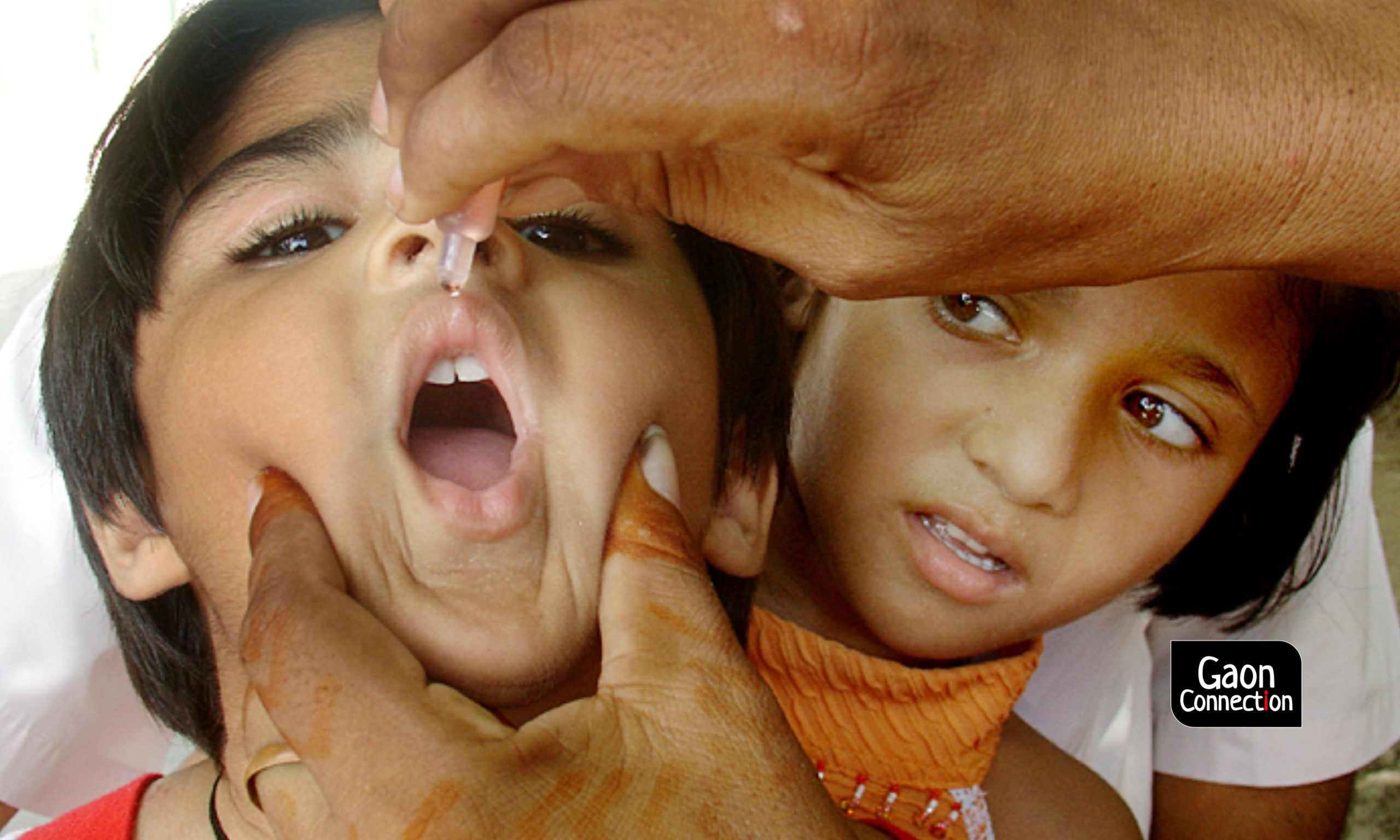The Union health minister, Harsh Vardhan, made an announcement about polio immunisation on January 8 at a press conference in Chennai, Tamil Nadu. “The polio immunisation campaign shall commence from 17 January. The government is committed to eradicate polio…” he said.
But the very next day, on January 9, a letter was issued by the country’s principal secretary for health and family welfare stating that the Polio NID (National Immunisation Day) was postponed till further notice due to ‘unforeseen activities’.
Shortly, however, on January 14, the ministry issued another letter informing the polio immunisation campaign was “rescheduled” for January 31, 2020. On January 30, the President of India would administer polio drops to a few children at Rashtrapati Bhavan and launch the campaign, tweeted the ministry of health and family welfare.
#PolioImmunisationDay#PolioFreeIndia
— Ministry of Health (@MoHFW_INDIA) January 14, 2021
Hon. President of India to launch Polio National Immunisation Day on 30th January 2021.
Polio NID rescheduled to 31th January 2021 (Sunday). pic.twitter.com/YGVFTcFlua
The polio immunisation programme has been running regularly in the country since 1995. In India, the polio drops campaign is carried out on a large scale annually and every year, lakhs of children up to five years of age are immunised. India has the world’s largest immunisation program.
Although the last case of polio in India was reported in the year 2011, and the World Health Organization (WHO) removed India from the list of “endemic countries with active poliovirus transmission” in 2012, the annual polio campaign under the National Health Mission continues to be invaluable.
India will do away with COVID-19, the way it had eradicated polio from the country in 10 years, Harshvardhan had declared in his press meet on January 8.
However, during the pandemic, the other health programmes in the country have clearly been pushed to the backburner, more so now with the country readying itself to receive the COVID-19 vaccine.
Postponing the campaign was not the right thing to do, said Amulya Nidhi, who is associated with Jan Swasthaya Abhiyan. He said the government’s move to stop other routine immunisation programmes in view of COVID-19 vaccination, that was beginning on January 17, was detrimental to public health.
“In March last year, almost every public health program had been stopped due to COVID-19 and had only been reinstated gradually after four months. Now the question is, will you again stop other health programs tomorrow if a new disease or virus occurs,” Nidhi demanded to know. It is obvious that non-COVID-19 health services in the country have been severely affected.
For COVID-19-like pandemics, the government should create a dedicated chain to be engaged in its vaccination programme in the country. “It is not right to jeopardize the other routine immunisation programmes a year into COVID-19 virus,” he said, pointing out how the government itself had said that people should learn to live with COVID-19. “It must do the same and learn to maintain other health-related programs along with those related to COVID-19,” he stated.
Both campaigns can be run simultaneously, pointed out Veena Gupta, state president of ASHA employees union in Uttar Pradesh, told Gaon Connection. “The pulse polio campaign should have been run parallelly with COVID-19 vaccination,” she said. ASHA workers play an important role in the polio eradication programme in the rural areas. Gupta pointed out that children had not been given polio drops for quite some time in the state due to COVID-19.
In fact on December 18, the WHO had cautioned that though the corona vaccine was expected to control the COVID-19 virus, it may take up to 12 to 24 months for ordinary citizens to get COVID-19 virus vaccine. The question arises whether it would be wise to ignore all other public health programmes until then.
“We have also been cautioned by the World Bank that we should emphasise on public health programmes beyond COVID-19,” Gopal Dobade, co-convener of the All-India Drug Action Network, told Gaon Connection. In some states, the public sector is very weak and there is no additional fund provided for public health, he said.
“So, there is a need to balance all the public health campaigns and if we are not able to do so, we are going to suffer its consequences in the coming time,” warned Dobade. He said that India’s health budget was one of the lowest in the world. “It is only 1.2 per cent of the GDP…It should have been at least four to five per cent,” he said.
“If the public health system in our country continues to struggle even after a year from the outbreak of COVID-19, we should brace ourselves for its bad outcome in the coming time,” D Raghunandan, former president and current executive member of the All-India People’s Science Network, reiterated.
According to Raghunandan, the country’s public health experts, scientists and health organisations had warned the government earlier about its exclusive focus on COVID-19 over other diseases. The other immunisation campaigns have already suffered a setback due to the COVID-19,” he said and saw no reason why the polio campaign and the COVID-19 immunisation campaign should not run concurrently.


















